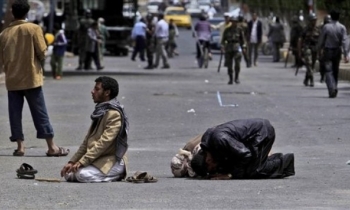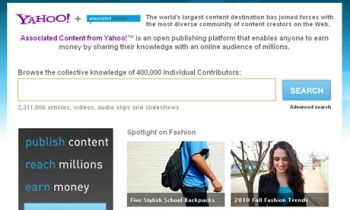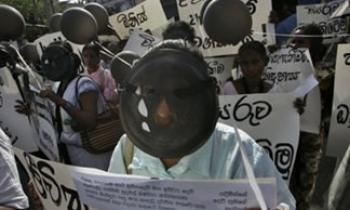According to a report released by Amnesty International this week, the Internet as we currently know it could change “beyond all recognition” unless urgent action is taken to counter what the human rights pressure group worryingly refers to as the “Virus of Internet repression” that’s spreading with increasing regularity via online monitoring and censorship.
More pointedly, Amnesty’s warning came immediately prior to a special global Webcast event held at its HQ in the United Kingdom, which accused such practices as being responsible for “eroding freedom of expression online.”
The event, sponsored by UK newspaper The Observer, was entitled ‘Some People Think the Internet is a Bad Thing: The Struggle for Freedom of Expression in Cyberspace’ and featured input from notables such as Internet entrepreneur Martha Lane Fox, Wikipedia founder Jimmy Wales, and also various known international victims of Internet-based repression.
“The virus of Internet repression is spreading. The 'Chinese model' – of an Internet that allows economic growth but not free speech or privacy – is growing in popularity, from a handful of countries five years ago to dozens of governments today who block sites and arrest bloggers,” outlined Tim Hancock, director of Amnesty International UK Campaigns. “Unless we act on this issue, the Internet could change beyond all recognition in the years to come. More and more governments are realising the utility of controlling what people see online. And major Internet companies, in an attempt to expand their markets, are colluding in these attempts.”
Amnesty has also pronounced its concern that while we presently log-on to the Internet with the assumption that we can freely peruse all that the online world has to offer, there are some quarters intent on limiting access so that we’re only able to view what is deemed to be approved content.
To back its claims, Amnesty cited increasing international reports regarding the practice of ‘Internet Filtering,’ whereby specific governments prevent user access to particular sites (such as popular video-sharing Web site YouTube), or even sites that contain words, statements or themes considered to be politically sensitive.
Further to that, the latest report published by the Open Net Initiative (ONI) on the spread of government-led content filtering revealed that at least 25 countries have been found to be applying state-mandated filtering. These countries include: Azerbaijan, Bahrain, Burma, Ethiopia, India, Iran, Morocco, Saudi Arabia, South Korea, Thailand and Tunisia.
Amnesty also claims that its research shows online giants such as Cisco, Google, and Microsoft have been exercising a self-serving degree of complicity in such acts of repression, particularly in China, where Web content is censored, and personal user data has been provided in order to facilitate government-led arrests. Beyond Net-based repression, Amnesty points out that related and “politically motivated closure of websites and Internet cafes, as well as threats or imprisonment” are much more widely reported.
“Web users have been both victims of human rights abuse and successful campaigners against it,” added Hancock. “The Internet is the new front in the battle between those who want to speak out, and those who want to stop them.”
Some People Think the Internet is a Bad Thing marked the first anniversary of irrepressible.info, Amnesty International’s campaign to combat the repression of international Internet users. To boost awareness yet further, Amnesty is to re-launch the new http://irrepressible.info Web site, which will include a news aggregator aimed at transforming the site into an information hub specifically for those online users interested and impassioned by the future of Internet-based freedom of speech.









